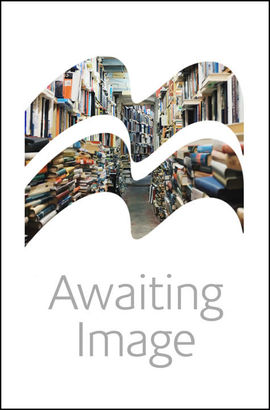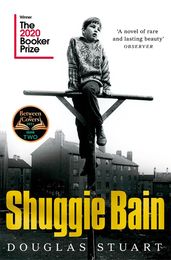
Synopsis
Winner of the Booker Prize 2020
Shortlisted for the National Book Award for Fiction 2020
An Observer ‘Best Debut Novelist of 2020’
‘An amazingly intimate, compassionate, gripping portrait of addiction, courage and love’ - The judges of the Booker Prize
It is 1981. Glasgow is dying and good families must grift to survive. Agnes Bain has always expected more from life. She dreams of greater things: a house with its own front door and a life bought and paid for outright (like her perfect, but false, teeth). But Agnes is abandoned by her philandering husband, and soon she and her three children find themselves trapped in a decimated mining town. As she descends deeper into drink, the children try their best to save her, yet one by one they must abandon her to save themselves. It is her son Shuggie who holds out hope the longest.
Shuggie is different. Fastidious and fussy, he shares his mother’s sense of snobbish propriety. The miners’ children pick on him and adults condemn him as no’ right. But Shuggie believes that if he tries his hardest, he can be normal like the other boys and help his mother escape this hopeless place.
Douglas Stuart’s Shuggie Bain lays bare the ruthlessness of poverty, the limits of love, and the hollowness of pride. A counterpart to the privileged Thatcher-era London of Alan Hollinghurst’s The Line of Beauty, it also recalls the work of Édouard Louis, Frank McCourt, and Hanya Yanagihara, a blistering debut by a brilliant writer with a powerful and important story to tell.
Details
Reviews
Beautiful and bleak but with enough warmth and optimism to carry the reader through.
A boy's heartbreaking love for his mother . . . as intense and excruciating to read as any novel I have ever held in my hand . . . The book’s evocative power arises out of the author’s talent for conjuring a place, a time, and the texture of emotion . . . brilliantly written.
A debut novel that reads like a masterpiece, Shuggie Bain gives voice to the kind of helpless, hopeless love that children can feel toward broken parents.
This heartfelt and harrowing debut novel – which has been compared to the work of Édouard Louis, Frank McCourt, and Hanya Yanagihara, and which Kirkus has already called “a masterpiece” . . . is rightly being heralded for its visceral, emotionally nuanced portrayal of working class Scottish life and its blazingly intimate exploration of a mother-son relationship.


